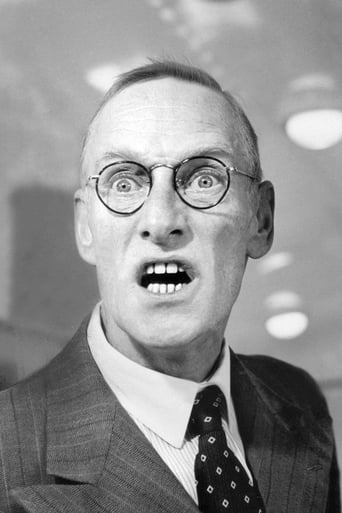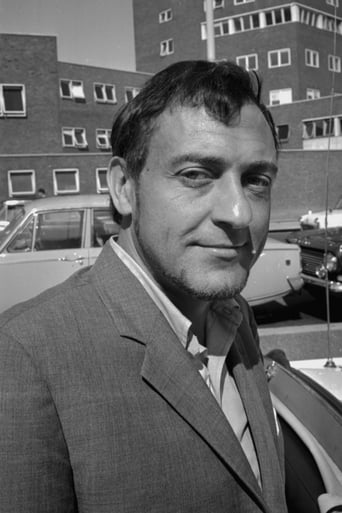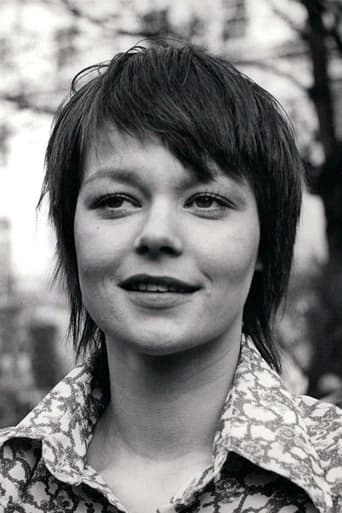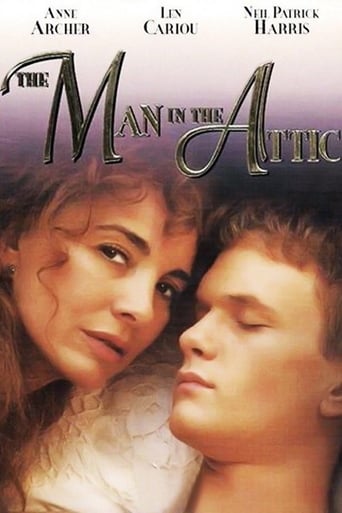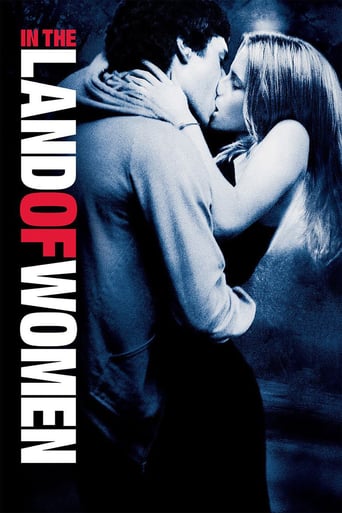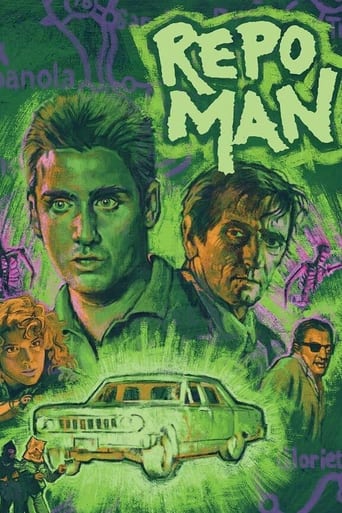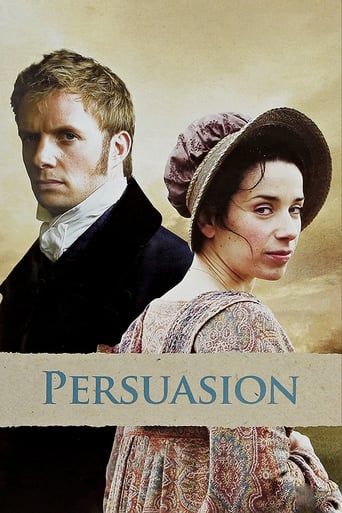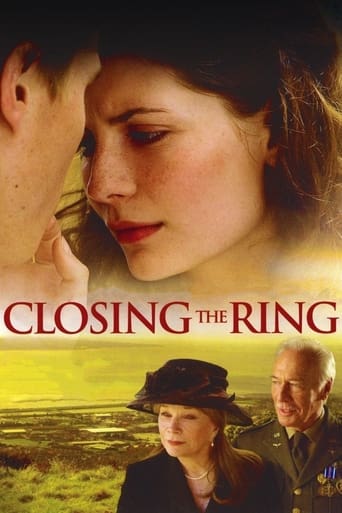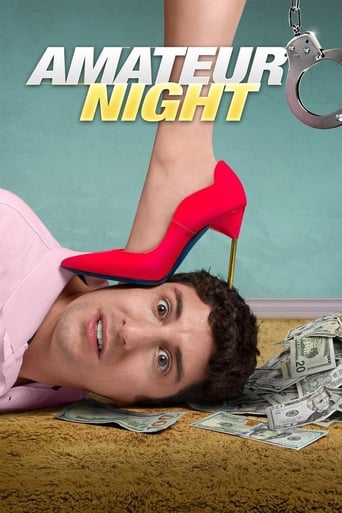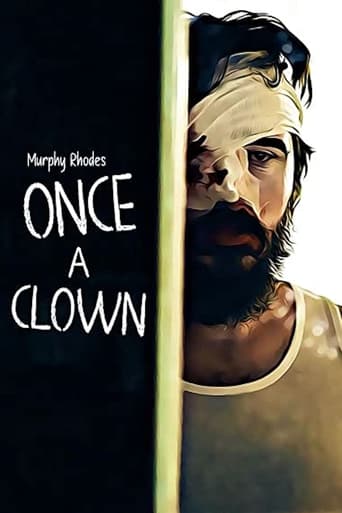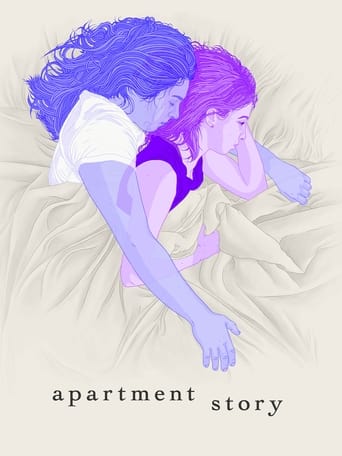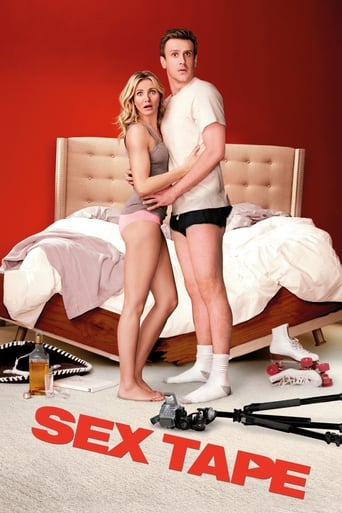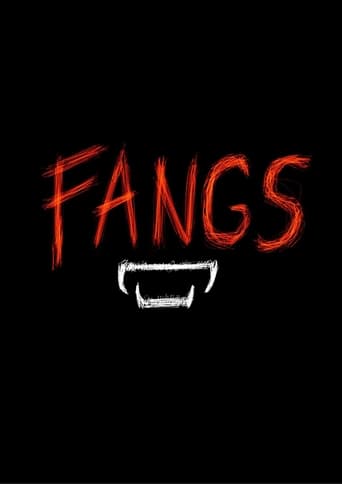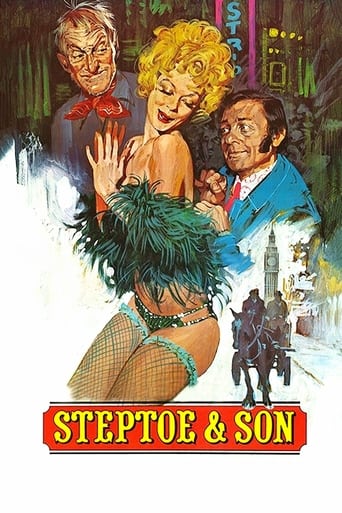
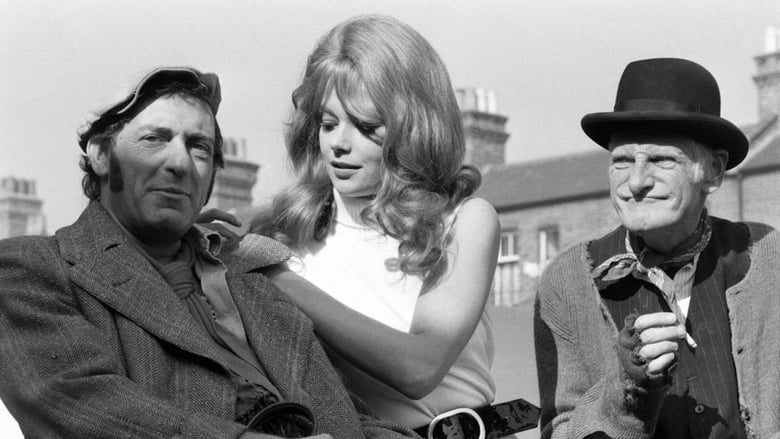
Steptoe & Son (1972)
Albert Steptoe and his son Harold are rag-and-bone men, complete with horse and cart to tour the neighbourhood. They also live together at the junk yard. Harold, who likes the bright lights in the West End of London, meets a stripper, marries her and takes her home. Albert is furious and tries every trick he knows to drive the new bride from his household.
Watch Trailer
Cast


Similar titles
Reviews
Very very predictable, including the post credit scene !!!
Wonderful character development!
Fantastic!
Wow! What a bizarre film! Unfortunately the few funny moments there were were quite overshadowed by it's completely weird and random vibe throughout.
The seventies marked the beginning of a long, slow decline for the British film industry, a sorry state of affairs that continues to this day. The once-proud Hammer studios, which had once flooded both the domestic and overseas markets with a steady supply of richly atmospheric horror films, had unwisely branched out into cheapskate big-screen spin-offs of previously popular sitcoms. The mighty Rank studios merged with Xerox, a company better known for making photocopiers, and the legendary EMI shortly followed suit, merging with Thorn, a company that manufactured light bulbs and fire extinguishers. Curiously enough, this sudden and irreversible decline in the fortunes of the heavy hitters paved the way for a short-lived golden age of British exploitation cinema, with the likes of Pete Walker and Norman J. Warren pushing the envelope in terms of gory violence and soft core sex as far as they dare under the baleful gaze of the censor, and fly- by-night operators churning out endless variations on the tried-and- tested Carry On formula with the added attractions of simulated sex, full-frontal nudity and scores of familiar faces from the television looking mightily embarrassed in cameo roles. Which brings us to the first of two big-screen outings for England's favourite rag and bone men, the inimitable Albert Steptoe and his long- suffering son Harold. Steptoe and Son first made their mark at the BBC back in 1962 in a one-off Comedy Playhouse instalment called the Offer; the episode made such an impact that the BBC commissioned a full series shortly thereafter. Between 1962 and 1965, there were four series of Steptoe and Son before the series' creators, Ray Galton and Alan Simpson, decided they'd exhausted its possibilities and moved on to pastures new. However, the characters of Harold and Albert were too good to be left to the tender mercies of the public's brief attention span, so a further four series were commissioned between 1970 and 1974, this time in glorious colour (though, true to form, only about half of the colour episodes actually exist in this format; the rest were wiped and the only copies left in the BBC archives are off-air black and white video recordings). The first Steptoe and Son film premiered in the same year as the seventh television series, regarded by many fans as the high watermark of the entire run, thanks to memorable episodes like 'Men of Letters', 'Divided we Stand', 'Oh What a Beautiful Mourning' and 'the Desperate Hours', so expectations for the feature were understandably high.Unfortunately, what cinema audiences got was a crude, half-hearted piece of work, long on bathos but painfully short on comedy, with a more-than-usually neutered and psychologically crippled Harold, a far less sympathetic Albert and a non-starter of a central plot in which Harold marries a stripper named Zita. As you might expect, the first half-hour or so of the film doesn't stray too far from the series' origins, and it also contains many of the film's stingy quota of highlights - most notoriously, Albert taking a bath in the kitchen sink. The scenes in the football team's social club offer a convincingly seedy glimpse of a long vanished world, and the scene where Harold and Zita meet for the first time is nicely played and actually rather touching. After this, though, repetition and coarseness begin to set in, and the screenplay contains more padding than a cheap settee - the endlessly delayed wedding and the doomed honeymoon in Spain (something of a missed opportunity, since effectively all that happens is that Albert succumbs to food poisoning, ruins his son's wedding and has to be returned home - whereupon he naturally makes a speedy recovery) find the supply of laughs slowly drying up, and by the time the film reaches the halfway mark all but the staunchest Steptoe fans will be feeling bewildered and cheated by the sudden gearshift into unsubtle maudlin sentimentality from which the film never really recovers. Some scenes feel more like a precursor to the reliably depressing EastEnders than a lighthearted (if gritty) situation comedy.Technically, the film is pretty shoddy also, with poorly recorded sound, some shocking dubbing - particularly during Mike Reid's stand-up routine, where the audience laughter seems to be coming from a different room entirely - and some very iffy continuity to contend with. Cliff Owen's direction is functional at best, though as other critics have noted, the scene in which Harold is beaten up in a rugby club has a horribly botched, half-finished feel to it, hardly helped by the sad fact that such an incident was horribly misjudged in the first place - genuine violence or malice seldom made it into the Steptoe world on television. Luckily, Galton and Simpson were offered a second chance at transferring their iconic characters to the cinema with 1973's Steptoe and Son Ride Again, a far superior film which manages to keep the laughs coming throughout and feels more faithful to the series as a result.
The 1970s was the decade of big screen adaptations for popular British TV series and STEPTOE AND SON is the first of two such workings for the ever-popular show (STEPTOE AND SON RIDE AGAIN would be released the following year). Fans of the series are likely to enjoy it as it sees the return of Harry H. Corbett and Wilfrid Brambell to their most famous roles, and the old camaraderie is back once more as if they'd never been away.However, this is a film that feels very different to the good-natured and light-hearted TV show. There's a cold, almost ruthless streak of pessimism in the production that makes this feel more like a tragedy than a comedy. In some ways it feels like an episode drawn out to feature length and the single-strand plot makes some elements of the production feel drawn out and repetitive.In essence the tale is about Corbett falling for a stripper and deciding to marry her, only for the needy Brambell to get in the way. Carolyn Seymour successfully portrays the awkwardness felt at coming between this pairing. There's little more to it than that, but at times this film feels like a depiction of psychological and emotional torture, with Brambell turning the thumb screws at every opportunity. It's testament to the skill of the two stars that this remains a likable comedy despite the darkness of the script. Inevitably, the grimy surroundings are better realised than ever on film as opposed to television, and the envelope is pushed further than ever with nudity and bad language in the mix.
In the TV series, Steptoe and Son always played with the audiences empathy. Old man Steptoe was a horrible man, but this was redeemed by the ludicrousness of his acts. Harold was naive and pretentious but because he was a rag and bone man nobody took him seriously. In this film someone does take Harold seriously and Steptoe is generally just horrible. The actors play their roles with their usual gusto, but the underlying love between Steptoe & his son that sustained the TV series is replaced here by something far less wholesome and more akin to psychological and emotional abuse. Cliff Owen (Director) had either never seen the series, or in this instance was incapable of capturing the subtlety and nuance that great comedy depends upon. Every gag is wrung dry and instead of pathos you get squalor. The TV series is and will remain a great example of British comedy, this film is not.
This captures the heart and soul of the TV show.The two leads are so realistic that you could not really see them as anything other than a classic double act.a neat story even if the ending is predictable.but its stays true to character.some good genuine laughs.though you do feel for the younger Steptoe.


